Labor of Law: Covid-19 Litigation Predictions | Seyfarth Cuts Partner Draws | Retailer Defeats Hostile Work Claim | Who Got the Work | Pandemic Headlines: Surveillance, OSHA & More
Welcome to Labor of Law, and we hope you are safe and well. Lawyers predict 'huge explosion' in covid-19 worker class actions. Law firm roundup: Seyfarth cuts partner draws. A new 4th Circuit hostile workplace ruling. Scroll down for Who Got the Work, and much more. Thanks for reading!
April 23, 2020 at 12:00 PM
11 minute read
Welcome to Labor of Law, and we hope you, family, friends and colleagues are safe in the virus era. On tap this week: Lawyers predict 'huge explosion' in covid-19 worker class actions | Seyfarth cuts partner draws | New 4th Circuit hostile workplace ruling | Who Got the Work | Roundup of major headlines. Thanks for reading, and your feedback is appreciated. I'm Mike Scarcella in Washington, and you can reach me at [email protected] and on Twitter @MikeScarcella.

Lawyers Predict 'Huge Explosion' in Worker Class Actions Over Covid-19
As unemployment rises and an increasing number of workers raise safety concerns over the coronavirus, lawyers in the class action bar predict that the largest group of class actions filed over the COVID-19 outbreak is likely to come from employees, my colleague Amanda Bronstad writes at Law.com.
Employees for the government, a hand bell factory and a hair salon have filed class actions, and lawyers predict many more to come, as millions of people file for unemployment claims. Lawyers expect allegations to include denied wages, discrimination during layoffs and exposure to unsafe working conditions.
"We're going to see a huge explosion of litigation related to this," said Karl Lindegren, co-chairman of the California litigation practice group at Fisher & Phillips. "You've got some very wealthy, well-established collective action lawyers there who won't be shy about taking this on."
Most of the COVID-19 class actions filed so far have focused on consumers seeking refunds or alleged price gouging of high-demand products. But there is a lag time for employment complaints, Kent Schmidt, a partner in the Costa Mesa, California, office of Dorsey & Whitney, said.
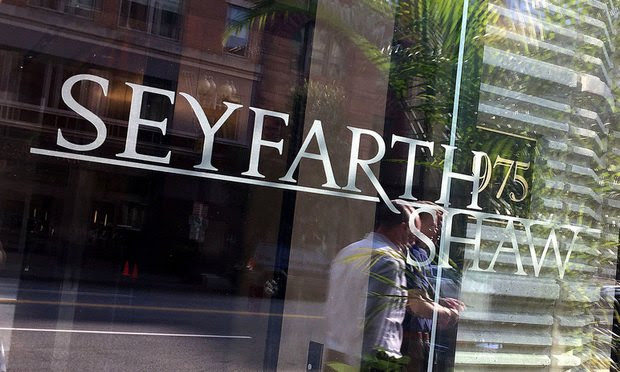
Law Firm Roundup: Seyfarth Cuts Salaries, Partner Draws, Furloughs Staff
Seyfarth Shaw last week said it was reducing equity partner draws, cutting salaries and furloughing 10% of its U.S. workforce, even as labor and employment practices are reportedly seeing more work due to the COVID-19 pandemic, my colleague David Thomas writes at Law.com.
Seyfarth's non-equity lawyers in the U.S. will see their pay reduced by 10% starting May 1. Equity partners, meanwhile, have seen their monthly draws reduced by 20% starting April 1. The firm is cutting salaries for staffers—the first $60,000 won't be affected, but earnings between $60,000 and $150,000 will be cut by 5%. Anything a staffer makes past $150,000 will be cut by 10%.
"We already have taken numerous steps to reduce costs that did not impact jobs. And while our financial foundation remains strong, we are implementing these new measures now out of caution," Seyfarth chair and managing partner Peter Miller said.
Meanwhile, after announcing limited staff furloughs last week, Ogletree Deakins Nash Smoak & Stewart on Tuesday said it will cut pay through the end of the year for all lawyers, including shareholders, and for staff making over $100,000, in response to the coronavirus pandemic, my colleague Meredith Hobbs writes.
The firm said it "has made the difficult decision to implement pay reductions for attorneys and highly compensated staff through the end of the year." The moves were made "in order to preserve jobs and maintain the stability of the firm for the long run."
Ogletree is reducing compensation for equity shareholders by 20% and for other lawyers by 15%, according to the statement. Staff earning $100,000 or more will have pay cut by 10%, but those making less than that will not have their compensation reduced. The firm has about 860 lawyers in the United States.
More reading: U.S. Law Firms More Aggressive Than U.K. Peers in Cutting Pay. "A faultline has emerged between US and UK law firms in response to the coronavirus pandemic, with American groups acting faster to cut pay for both junior and senior lawyers." [The Financial Times]
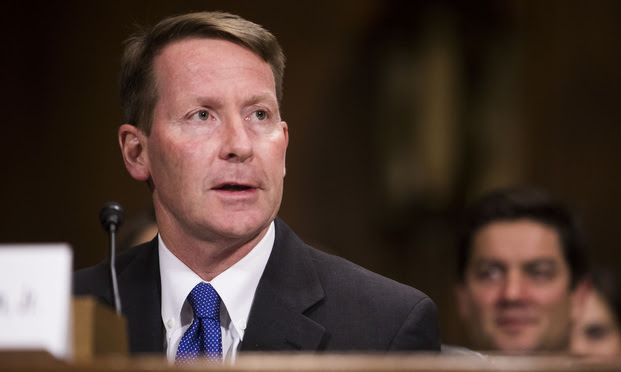
'Unwelcomed Racial and Sexual Conduct' Can't Be Pinned On Employer: US Appeals Court
The national retailer Best Buy Inc. cannot be held liable for a hostile workplace claim based on an employee's "unwelcomed racial and sexual conduct," the U.S. Court of Appeals for the Fourth Circuit ruled this week.
The Virginia-based appeals court upheld a Maryland judge's ruling in favor of Best Buy. The panel said the employee's offensive conduct cannot be imputed to the corporation under federal workplace laws.
The employee's suit focused on racist and sexual remarks a Best Buy employee said to a group of coworkers that included the plaintiff, an African-American female. The company addressed, but did not terminate, the worker who made the offensive remarks. The plaintiff alleged Best Buy's response was inadequate.
"Our decision today should not be construed as condoning or even minimizing [a] tasteless effort at a joke. Instead, our decision is limited to analyzing whether [the] allegations plausibly state a Title VII hostile work environment claim," Judge A. Marvin Quattlebaum Jr. (above) wrote for the panel, which included judges G. Steve Agee and Julius Richardson.
The panel said: "Title VII does not prescribe specific action for an employer to take in response to racial or sexual harassment, or require that the harasser be fired."
Quattlebaum and Richardson joined the appeals court as Trump White House appointees, and Agee has served on the circuit since 2008. Quattlebaum, formerly a Nelson Mullins Riley & Scarborough products liability partner, was first appointed by Trump to the U.S. District Court for the District of South Carolina. Richardson was an assistant U.S. attorney in South Carolina from 2009-2018.
The appeals court had scheduled the case for oral argument but removed the dispute, and dozens of others, from the calendar amid the coronavirus pandemic.
Best Buy was represented by Tydings & Rosenberg LLP, and the employee was represented by the Washington University School of Law appellate clinic.
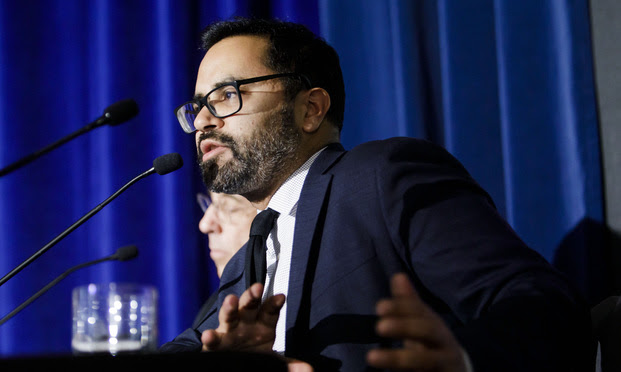
Who Got the Work
>> Deepak Gupta (above) of the litigation boutique Gupta Wessler is representing a union of administrative law judges who have sued over the constitutionality of President Donald Trump's appointees to a federal labor panel, arguing the members should have been approved by the Senate, and therefore, their rulings should be thrown out, my colleague Jacqueline Thomsen reports at Law.com. Read the complaint in U.S. District Court for the District of Columbia.
>> The New York firm Cohen, Weiss and Simon is representing the New York State Nurses Association in suits against the Westchester County Health Corporation alleging inadequate protective equipment. The Washington Post has more here, and the WSJ here.
>> "The former commissioner of the XFL recently filed a wrongful-termination lawsuit in federal court against the football league's controlling owner, Vince McMahon, three days after the short-lived sports venture filed for bankruptcy," The New York Times reports. K&L Gates partner Jerry McDevitt represents McMahon. Shipman & Goodwin's Andrew Zeitlin, working with lawyers from Dobrowski, Larkin & Stafford, represent Oliver Luck, the plaintiff. Read the complaint here in Connecticut federal district court.
>> Littler Mendelson shareholder Jeannie DeVeney in Kansas City, Missouri, was counsel of record to American Bottling Company, doing business as Dr. Pepper Snapple Group Inc., in a case alleging racial discrimination. The U.S. Court of Appeals for the Eighth Circuit upheld the dismissal of the former worker's claims. Ann Brown of Cedar Rapids, Iowa, argued for the former employee.
>> Littler Mendelson shareholder Alexis Knapp in Houston represented Champion Fiberglass in a settlement with the EEOC. "Champion to pay $225,000 to compensate a class of non-Hispanic applicants and job-seekers who were prohibited from applying for a laborer position," the agency said. The EEOC's Connie Gatlin represented the agency. The company denied all allegations of discrimination. Read the consent order here.
>> Katharine Rand, a Pierce Atwood LLP partner in Maine, represented Wayfair Maine LLC in a disability discrimination case. The U.S. Court of Appeals for the First Circuit upheld summary judgment in favor of Wayfair. Brett Baber of Lanham Blackwell & Baber advocated for the former employee.

Around the Water Cooler
Covid-19
You're Working From Home, but Your Company Is Still Watching You. "Now that millions are suddenly doing their jobs at home as a result of the new coronavirus, more companies want to know how employees are spending their time. Some of them are relying on the same surveillance tools that have been used to monitor work in the office, and they don't always disclose when the software is added to laptops remotely." [WSJ]
Thousands of OSHA Complaints Filed Against Companies for Virus Workplace Safety Concerns, Records Show. "The employee complaints offer a snapshot of the fear experienced by the Americans compelled to work while the majority have been urged to stay at home, and they arise from an array of workplaces: hospitals, airlines, construction companies, call centers, grocery stores, beauty spas, pharmacies and shipping companies, among others. Collectively, the records depict the desperation of the employees as well as their frustrations with employers who in their view were at best simply unprepared for a pandemic and at worst callously unconcerned with worker safety." [The Washington Post]
Protecting Workers From Coronavirus: OSHA Leaves It to Employers. "The agency, part of the Labor Department, announced last week that there would be few inspections of workplaces aside from those in high-risk activities like health care and emergency response. Instead, it called on employers to investigate coronavirus-related issues on their own, even in hot spots such as the food supply chain." [NYT]
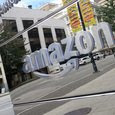 The NLRB Is Looking Into Claims That Amazon Violated Employees' Rights During The Coronavirus Pandemic. "Federal labor regulators have indicated that they will be watching Amazon after workers in Chicago filed charges against the company alleging it retaliated against them for participating in protests about working conditions during the coronavirus pandemic, according to public documents filed this week. The labor board's inquiry, which experts say is unusual, comes as Amazon is under national scrutiny for firing at least four employees who engaged in walkouts and work slowdowns to protest worker safety during the pandemic." [BuzzFeed News] Tech Insider has more here.
The NLRB Is Looking Into Claims That Amazon Violated Employees' Rights During The Coronavirus Pandemic. "Federal labor regulators have indicated that they will be watching Amazon after workers in Chicago filed charges against the company alleging it retaliated against them for participating in protests about working conditions during the coronavirus pandemic, according to public documents filed this week. The labor board's inquiry, which experts say is unusual, comes as Amazon is under national scrutiny for firing at least four employees who engaged in walkouts and work slowdowns to protest worker safety during the pandemic." [BuzzFeed News] Tech Insider has more here.
To Get Back to Work, Companies Seek Coronavirus Tests for Workers. "Business leaders convened by the Trump administration last week to discuss reopening the economy said the U.S. needed to dramatically increase the availability of testing before their workers would feel comfortable returning to the office. Some executives on the call indicated they were looking into providing tests for workers and, potentially, customers, according to people familiar with the matter." [WSJ]
Democrats Push for Coronavirus Workplace Safety Rules. "Democrats and labor groups say companies should be forced to establish formal workplace coronavirus protections, a demand set to become a point of tension with Republicans and the Trump administration in the next round of stimulus talks." [WSJ]
Courts and cases
Goldman Sachs Duped Women Into Signing Away Right to Sue, Lawyers Say. "Goldman Sachs Group Inc. tricked women into waiving their right to sue the firm, the women said in asking a court to bar the firm from forcing them into arbitration in a closely watched gender bias case. In a filing on Thursday, the women asked the federal judge overseeing the class action lawsuit—one of the biggest pay discrimination suits targeting a financial firm—to reject a magistrate's recommendation last month granting Goldman's request to move 1,850 of the claims to arbitration." [Bloomberg]
Compensation
Male GCs Are Getting Paid 40% More on Average Than Their Female Counterparts. A global in-house counsel compensation survey that Major, Lindsey & Africa released on Tuesday shows that U.S.-based GCs and chief legal officers earn about $503,000 in average annual total cash compensation, compared with about $348,000 for GCs outside the U.S. The report notes that the compensation difference is likely due, at least in part, to the fact that in-house leaders in the U.S. have broader roles and responsibilities than their counterparts in other jurisdictions. The survey represents MLA's most comprehensive global study of in-house pay to date. [Law.com]
This content has been archived. It is available through our partners, LexisNexis® and Bloomberg Law.
To view this content, please continue to their sites.
Not a Lexis Subscriber?
Subscribe Now
Not a Bloomberg Law Subscriber?
Subscribe Now
NOT FOR REPRINT
© 2025 ALM Global, LLC, All Rights Reserved. Request academic re-use from www.copyright.com. All other uses, submit a request to [email protected]. For more information visit Asset & Logo Licensing.
You Might Like
View All
Labor of Law: As Workers Suffer With Long Covid, Employers May Rethink Accommodations for Other Disabilities

Labor of Law: Federal Noncompete Ban Would Be Far From Last Word on Issue
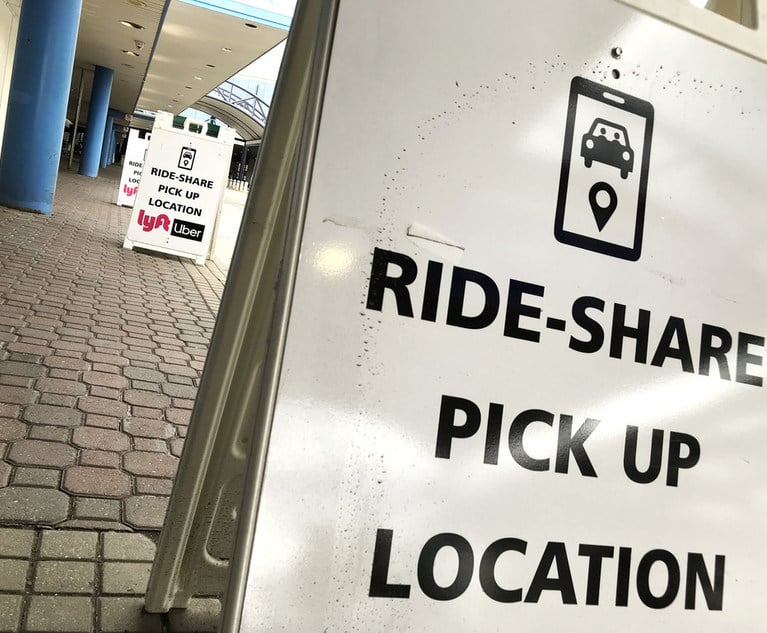
Labor of Law: New Federal Rule Could Upend State Efforts to Count Ride-Share Drivers as Contractors

Labor of Law: Employer Statements on Abortion Could Spur Discrimination, Hostile Work Environment Claims
Law Firms Mentioned
Trending Stories
- 1The End of Innocence? DEP’s End Run Around ‘All Appropriate Inquiry’ Spill Act Protections
- 2Pistachio Giant Wonderful Files Trademark Suit Against Canadian Maker of Wonderspread
- 3New York State Authorizes Stand-Alone Business Interruption Insurance Policies
- 4Buyer Beware: Continuity of Coverage in Legal Malpractice Insurance
- 5‘Listen, Listen, Listen’: Some Practice Tips From Judges in the Oakland Federal Courthouse
Who Got The Work
J. Brugh Lower of Gibbons has entered an appearance for industrial equipment supplier Devco Corporation in a pending trademark infringement lawsuit. The suit, accusing the defendant of selling knock-off Graco products, was filed Dec. 18 in New Jersey District Court by Rivkin Radler on behalf of Graco Inc. and Graco Minnesota. The case, assigned to U.S. District Judge Zahid N. Quraishi, is 3:24-cv-11294, Graco Inc. et al v. Devco Corporation.
Who Got The Work
Rebecca Maller-Stein and Kent A. Yalowitz of Arnold & Porter Kaye Scholer have entered their appearances for Hanaco Venture Capital and its executives, Lior Prosor and David Frankel, in a pending securities lawsuit. The action, filed on Dec. 24 in New York Southern District Court by Zell, Aron & Co. on behalf of Goldeneye Advisors, accuses the defendants of negligently and fraudulently managing the plaintiff's $1 million investment. The case, assigned to U.S. District Judge Vernon S. Broderick, is 1:24-cv-09918, Goldeneye Advisors, LLC v. Hanaco Venture Capital, Ltd. et al.
Who Got The Work
Attorneys from A&O Shearman has stepped in as defense counsel for Toronto-Dominion Bank and other defendants in a pending securities class action. The suit, filed Dec. 11 in New York Southern District Court by Bleichmar Fonti & Auld, accuses the defendants of concealing the bank's 'pervasive' deficiencies in regards to its compliance with the Bank Secrecy Act and the quality of its anti-money laundering controls. The case, assigned to U.S. District Judge Arun Subramanian, is 1:24-cv-09445, Gonzalez v. The Toronto-Dominion Bank et al.
Who Got The Work
Crown Castle International, a Pennsylvania company providing shared communications infrastructure, has turned to Luke D. Wolf of Gordon Rees Scully Mansukhani to fend off a pending breach-of-contract lawsuit. The court action, filed Nov. 25 in Michigan Eastern District Court by Hooper Hathaway PC on behalf of The Town Residences LLC, accuses Crown Castle of failing to transfer approximately $30,000 in utility payments from T-Mobile in breach of a roof-top lease and assignment agreement. The case, assigned to U.S. District Judge Susan K. Declercq, is 2:24-cv-13131, The Town Residences LLC v. T-Mobile US, Inc. et al.
Who Got The Work
Wilfred P. Coronato and Daniel M. Schwartz of McCarter & English have stepped in as defense counsel to Electrolux Home Products Inc. in a pending product liability lawsuit. The court action, filed Nov. 26 in New York Eastern District Court by Poulos Lopiccolo PC and Nagel Rice LLP on behalf of David Stern, alleges that the defendant's refrigerators’ drawers and shelving repeatedly break and fall apart within months after purchase. The case, assigned to U.S. District Judge Joan M. Azrack, is 2:24-cv-08204, Stern v. Electrolux Home Products, Inc.
Featured Firms
Law Offices of Gary Martin Hays & Associates, P.C.
(470) 294-1674
Law Offices of Mark E. Salomone
(857) 444-6468
Smith & Hassler
(713) 739-1250








